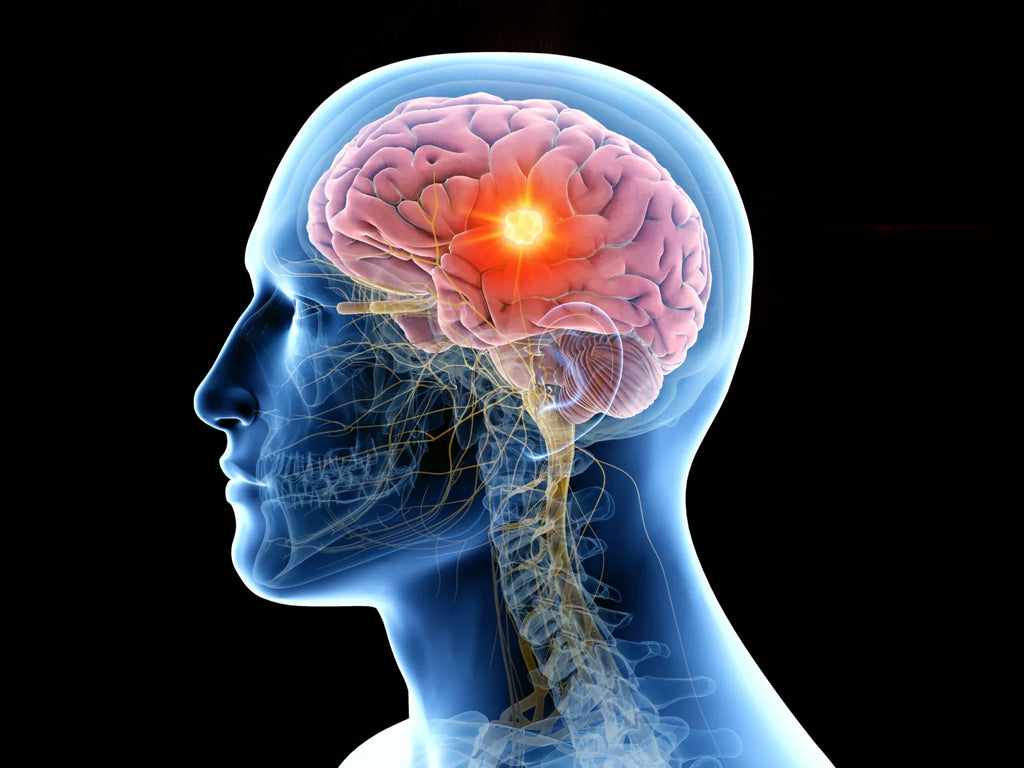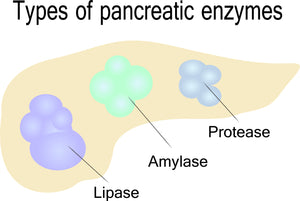Be Smart! Magnesium for the Brain!

A recent podcast by Dr. Gez Agolli and Dr. Cheryl Burdette focused on the miracles of magnesium and explored how deeply important that element is for so many systems in the human body. Today we’ll take a closer look at magnesium and brain health specifically. Most studies show that many people, especially in industrialized societies, have lower levels of magnesium than they should. 50% of Americans don’t get enough magnesium in their diet, 10-30% of people show subclinical magnesium deficiencies when their blood is tested, and 2% of people have clinically low levels of magnesium- if this level becomes critically low, (severe hypomagnesemia) it can have life-threatening complications such as seizures. cardiac arrhythmias (abnormal heart patterns) coronary artery vasospasm, and sudden death. Most people don’t reach that state, but since magnesium is utilized in over 300 metabolic reactions, even having somewhat lower levels of magnesium can cause a variety of symptoms. Many people are probably most familiar with muscle cramps, but weakness, nausea, numbness, tingling, and muscle spasms can develop, and as magnesium levels decrease, cardiac functions can be involved as well. Less well-known is the role that magnesium plays in regulating healthy brain function.
Types of magnesium and brain function
Healthy levels of magnesium in the brain are necessary for maintaining healthy synapses, cognition, avoiding various neurological issues, helping to manage stress and anxiety, assisting with sleep, and keeping us psychologically on balance. I say healthy levels of magnesium IN the brain, because not all types of magnesium cross the blood-brain barrier, meaning that some forms of magnesium that might come from supplementation might be perfectly adequate for many bodily functions such as muscle and cardiac function, but be less helpful in contributing to brain health. Dimagnesium malate, magnesium lysinate glycinate chelate and magnesium L-threonate are all forms of magnesium that have efficacy across the blood-brain barrier. These different magnesium forms stimulate the brain in different ways. Perhaps most excitingly, researchers at MIT (Massachusetts Institute of Technology) have developed a proprietary form of magnesium L-threonate called Magtein™. Magtein™ is a groundbreaking organic magnesium compound that was developed to support “brain power” by supporting synapses directly. When brain magnesium levels are not optimal, synapse function deteriorates. By delivering magnesium into synapses, Magtein helps brain cells stay healthy, without being overactivated; consequently, brain cells respond to signals with clarity and robustness. Studies show that Magtein crosses the blood-brain barrier and raises the brain’s magnesium levels, which result in increased magnesium deposits in neural synapses, increased neural synaptic density, and improved brain function. One animal study showed that when the bioavailability of several magnesium compounds was compared to controls, only Magtein significantly enhanced magnesium bioavailability and produced a significant increase (7% to 15%) in rat cerebrospinal fluid. These small but significant increases in brain magnesium levels produced profound effects on neurological function.
Brain magnesium levels and synapse health
Maintaining extracellular magnesium in the brain helps preserve synaptic density and keeps the synapses working properly. (Slutsky, et al, 2004). In other words, adding magnesium across the blood-brain barrier helps maintain enough synapses to meet the brain’s needs, and contributes to those synapses’ health. Your synapses are the basic units of the brain for exchanging electrical impulses throughout the brain’s network, which is how the brain sends signals for everything from motor control to higher-level thinking. More specifically, researchers in the above-cited study found that by increasing magnesium concentration in the extracellular fluid, researchers observed permanent enhancement of synaptic plasticity in networks of cultured hippocampal neurons. This form of magnesium apparently increases NMDA receptor signaling in the brain, and these receptors are particularly rich in the hippocampus. NMDA receptors in the hippocampus have been linked to memory encoding, and therefore to memory retrieval and function. In fact, although it’s too early for any clear results, there have even been some studies that show some early promise in utilizing magnesium to delay or prevent Alzheimer’s Disease.
Brain magnesium levels and cognition
Effective cognition, meaning simply how well you think, has also been linked to magnesium levels. Lower levels of magnesium can cause brain fog, tiredness, slowed memory recall, and perception of generally fuzzier thinking. Magnesium levels in general, seem to affect cognition in adults. Studies of Magtein specifically have shown that after taking Magtein for 12 weeks, patients 50-70 years of age demonstrated reduced cognitive declines compared to age-matched controls. Furthermore, the researchers calculated a particularly compelling impact of Magtein using data from age-matched subjects: After six weeks of treatment, the average brain age of the Magtein group decreased from 69.6 ± 4.2 years to 60.6 ± 5.6 years, an improvement of 9.0 ± 3.5 years, and persisted after 12 weeks of treatment with 9.4 ± 3.5 years of improvement. This cognitive improvement in older adults is remarkable, and cognitive decline while aging is a key predictor of dementia as we age. It’s not just about cognitive decline as we age, either. Magnesium is essential for the production of ATP, which helps supply the mitochondria of our cells with energy. Our brains use about 20% of the body’s energy, even though the brain takes up only 2% of the body’s mass. Since the brain is such an energy consumer, it’s thought that sufficient ATP, and therefore magnesium is essential to sustain our cognition. Too little magnesium is more likely to make us fatigued and lead to murkier thinking, particularly when we demand a lot of mental energy from the brain- studying, working, deep thinking- anytime we concentrate on a task for a long period of time. Even during sleep, our brain is at work, reconstructing and ordering the events of the day and preparing for another. Animal studies have found that in both aged and younger animals, magnesium levels had a significant effect on cognition. Several preclinical animal studies that used assessments such as the NORT (novel object recognition test), T-maze, Morris water maze, conditioned fear memory, and conditioned taste aversion have also validated Magtein’s effectiveness. In these studies, researchers demonstrated that when brain magnesium levels were increased, significant benefits were detected in multiple aspects of learning and memory in young and aged rodents. For instance, NORT tests performed by Slutsky et al revealed that short-term memory improved by approximately 135% and long-term memory improved by approximately 85% in aged rats treated with Magtein compared to control (untreated) rats.
Brain magnesium levels and psychological health
Magnesium is known to benefit the body in ways that counter stress, promote restful sleep, and support a healthy mood. In rats, giving magnesium decreased neurologic changes brought on by chronic mild stress(Pochwat, et al, 2014). Additionally, by increasing fear memory extinction, Magtein showed promise as a modulator of worry(Abumaria, et al, 2011). In human studies, magnesium supplementation partially reversed sleep changes associated with aging and improved objective and subjective measures of sleep (Held, et al, 2002). Improving sleep quality and countering the effects of chronic stress positively impact mood—another area that is beneficially influenced by optimal magnesium status (Pochwat et al, and Abumaria, et al). A number of other studies have positively correlated supplementing with magnesium and decreasing depression (Eby and Eby 2006), assisting with post-traumatic stress disorder (Fromm, et al, 2004), and a number of other psychological concerns that revolve around anxiety, worry, and depression. While depressed, magnesium is eliminated through urine at an increased rate compared to when we are not. The same may be true of stress. It certainly seems that there is a strong connection between mental well-being and our magnesium levels, and even between magnesium supplementation and our mental health. Another factor is that magnesium seems necessary for uptake of vitamin D to the brain. Lowered magnesium levels may mean that you suffer from lower vitamin D levels as well, and vitamin D may also be linked to mental health. If you are undergoing stress, anxiety, or worry, magnesium supplementation may be a cost-effective way to help improve your mood and be better able to cope with a challenging environment.
- Tags: Article Immune Mental Health
- Robert Thomas







Comments 0